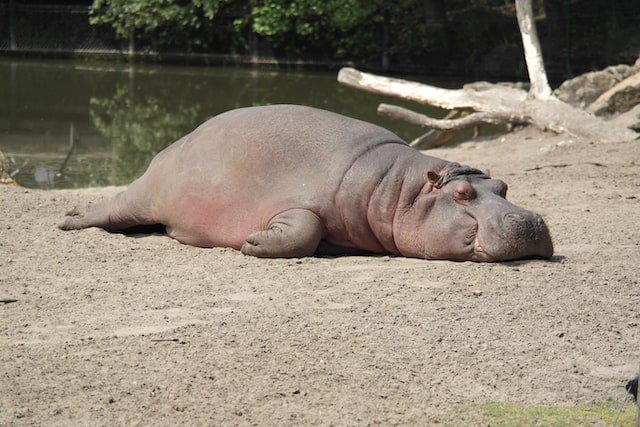Can Doing Less Help You Shine Like a Superstar?

I've spent a lot of time reading advice for writers, and here's some I see frequently: to improve, write more. This makes intuitive sense. After all, you get better at what you practice.
Today I’m going to examine the question of whether all practice is the same. Is it possible that for some activities doing more can be counterproductive?
In other words, is the time you spend practicing your craft well spent?
Another Way to Improve – Challenge Your Views
Before diving into that topic let me share another way to improve your thinking. That is to expose yourself to diverse viewpoints and keep an open mind.
If you think you already know everything you are closed to new inputs. And if we're honest, what are the chances that we're right about everything we think we know?
It is in that spirit that I am happy to highlight this week's Guest Post from my friend Christian Walter. He disagreed with my recent post about the ozone layer and told me so.
I invited him to explain his thoughts in more detail. I think you'll agree that he has a valuable perspective, and I encourage you to check out his post.

Now back to the main discussion about different kinds of practice.
What Happens When We Practice?
To explore how repetition works, let’s break activities into two types: physical and mental. This will help us tease out when repetitive practice will help us.
Consider what happens when you’re trying to improve your fitness. Take running to illustrate.
If you are new to running you probably won’t be able to go far or fast. But most people can run a short distance without any training whatsoever.
- You will see tremendous improvement in your running endurance and pace from simply practicing regularly for several weeks and months.
- This is because your body responds automatically to the physical stressors you subject it to.
You will quickly hit limits when ramping up your physical activity
Immediately after adopting the advice to run more regularly, you will hear the warning not to increase your weekly distance too quickly.
That’s because it takes time for your body to adapt to the stress of additional activity. In fact, the more intensely you train, the greater the need for recovery time in between workouts.
New runners frequently injure themselves by practicing too much. Their very enthusiasm hinders their progress.
In contrast, elite runners plan their recovery with the same focus as they do their workouts.

Do the same limits apply to our mental activities?
“All very interesting, James,” you might be thinking, “but running is nothing like writing or other mental activities. These things come from the mind, and we don’t wear that out with practice.”
Is that really true, though?
What happens to the vast majority of people who say they’ll learn a new language? They start with unbounded enthusiasm only to find their motivation waning after a few weeks.
Or have you ever studied for an important test? Could you concentrate as well after eight hours as you could when you started?
In fact, for many mental activities, we see both our interest and ability taper off with continuous repetition.
But wait. I can do some mental activities for a really long time — what about those?
You might be thinking of activities you can do seemingly forever:
- There was that time you binge-watched your favorite series for five days straight.
- And let’s not forget the hours you can spend scrolling Instagram or TikTok.
Here we must distinguish between stimulating our minds and using our minds. We get a dopamine hit from watching our screens, but we can do so relatively mindlessly.
There is a big difference between passive consumption of media and actively engaging with it.

Mere repetition will improve your skills only so far
While we can improve basic skills with practice, simple repetition has limits. It helps us most when we are brand new to an activity. But too much repetition tires us out.
What if you want to go beyond basic skills to advanced skills? How can we leverage our practice to do that?
Beyond Mere Repetition Lies Mindfulness, or Deliberate Practice
What distinguishes basic practice from advanced practice is your mind. Your mind makes the difference when you are trying to improve a physical activity like running as well as a mental activity like writing.
Applying mindfulness to practice looks something like this:
- Explore potential improvement ideas and adopt a provisional hypothesis about what skill you need
- Study a promising method and plan to put your new method into use
- Try out your new method, paying careful attention during the attempt
- Evaluate your results after your exercise. Consider getting independent advice, to ensure you aren't mindfully reinforcing bad habits
- Repeat
An Example of Mindful Running Practice
You’ve built your basic endurance and now you want to run faster.
You research possible methods by reading Runner’s World and other running blogs. You come across several ideas: speed play, interval training, hill training, running drills, racing, shoes with carbon inserts, joining a running group, etc.
You select hill training and read more about it. You decide to add one hill workout a week. You search your neighborhood for a suitable hill — steep, but not too steep, long enough to run several minutes, away from traffic.
You schedule your first workout and mentally prepare yourself. You perform the workout, paying careful attention to the new sensations. When you are done, you take some notes about what went well and what was painful.
With questions in mind, you do more research about hill running before planning your next workout. Perhaps you talk with a coach or an experienced running friend. You track your progress over the next eight weeks.
Although you are adding just a single new element to your running (hill workouts), mindful practice is the furthest thing from “just running more.”
An Example of Mindful Writing Practice
Your mental activities will similarly benefit when you approach your practice mindfully. I'll use the example of mindful writing.
You explore ideas about how to write better. Do you need help writing catchy headlines? Or is it your structure that’s lacking? Maybe it’s your vocabulary or grammar you’d like to focus on.
Are enough readers making it to the end of your articles? Do they come back for more?
Let’s say you want to craft stickier headlines. You search for articles and find several, like this one: Will a Headline Analyzer Save Your Story from Obscurity?
You decide to try out a free analyzer tool for your next five articles. You download the desktop extension. In your first article, you figure out how the tool works and improve your headline score by 20%. You pay attention to the factors where you scored low.
In your second article, you try to create a better first draft title by focusing on areas where you previously scored low. Yay! You did better this time, and you select a new area to improve. And you repeat the process.
In the meantime, you check the statistics for your first few articles. How are they performing? Can you see any difference between your prior articles?
This is a mindful writing practice. I trust you’ll agree it’s the furthest thing from “just writing more.”

Practice Less if That Helps You Practice Mindfully
Simply practicing more will bring you basic skills. But it will never make you more than an average performer. And it might only be reinforcing bad habits.
To jump to above-average, you want to be mindful when practicing. If that means slowing down to practice carefully and deliberately, go ahead and do it.
Mindfully practicing once a week may take you much farther than simply putting in more hours.
Be well.
Hit reply to tell me what's on your mind or write a comment directly on Klugne. If you received this mail from a friend and would like to subscribe to my free weekly newsletter, click here.







Member discussion